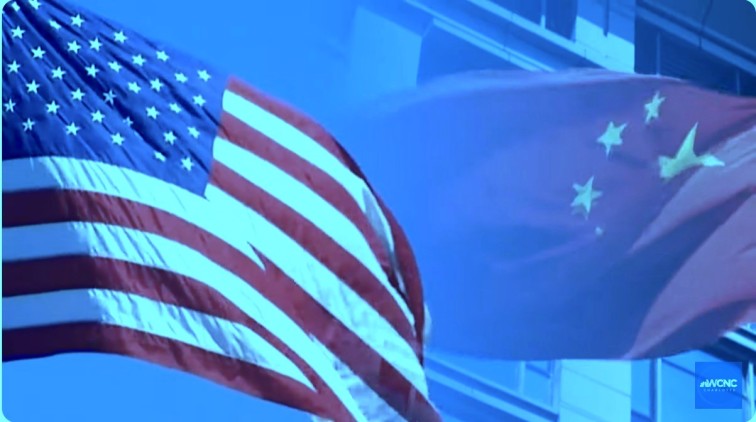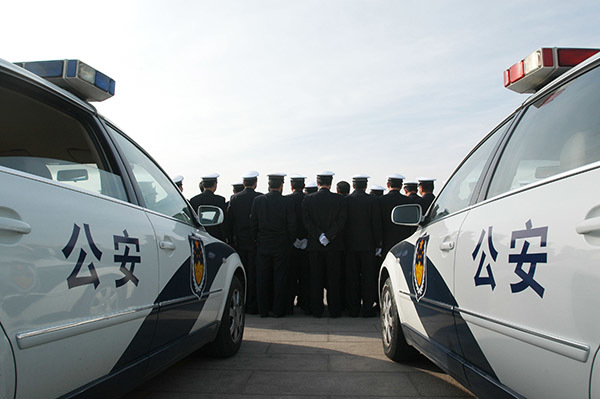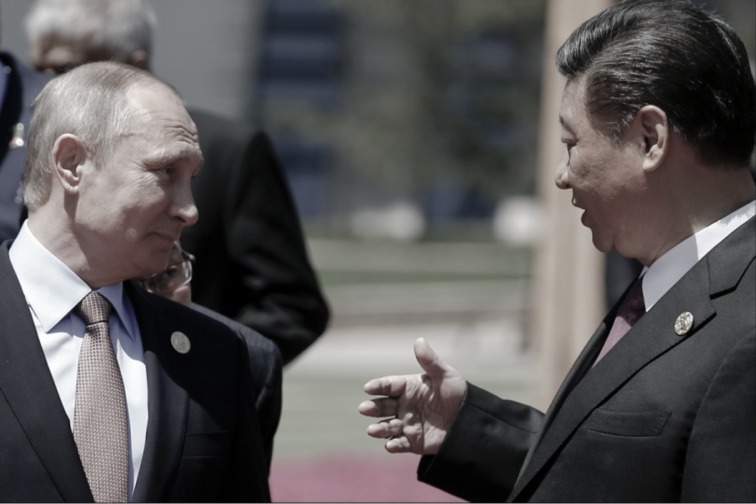BEIJING, CHINA - MARCH 7: Chinese Foreign Minister Wang Yi speaks during a press conference for domestic and foreign journalists as part of the National People's Congress and Two Sessions on March 7, 2024, in Beijing, China. China's annual political gathering, known as the Two Sessions, convenes leaders and lawmakers to set the government's agenda for domestic economic and social development for the year. (Photo by Kevin Frayer/Getty Images)
[People News] Recently, Chinese Foreign Minister Wang Yi shocked the world during a closed-door meeting with the EU’s foreign policy chief Kaja Kallas. He reportedly stated: “China does not want to see Russia fail in Ukraine, because it does not want the U.S. to focus all its attention on China.” Just hours before the meeting, Kallas had clearly criticised China’s double game: “China is fueling the war in Europe while seeking closer ties with Europe. You can’t have it both ways.” The EU’s decision to reveal the details of this private meeting suggests a deeper strategy—both overt and covert—may be at play.
I. The Statement Reveals the CCP’s True Strategic Intent Toward Russia
Independent media personality Du Wen noted on his program that this statement exposes the CCP’s real strategy toward Russia—not a true partnership, but cold, calculated exploitation. The CCP is not “neutral” in the Russia-Ukraine conflict; rather, it sees the war as a way to distract the U.S. and buy strategic breathing room. The core of Beijing’s diplomatic strategy toward Russia is: Use, weaken, monitor, and guard against. The war serves the CCP’s interest in dragging Russia down, sending its youth to die in combat, and potentially opening opportunities to encroach on its vast Far East territories. Analyst Zhai Shanying also reached a similar conclusion.
However, one suspicious detail may have been overlooked by these commentators: the contents of closed-door diplomatic talks are never publicly released. Whatever is said is usually considered politically motivated and not subject to accountability. This raises two major questions:
-
Why would Wang Yi disclose China’s strategic stance on Russia to the EU?
-
How did confidential diplomatic information get leaked to the media?
Did Wang Yi really make such a massive error? There’s only one likely explanation: he was set up by someone within the CCP’s top ranks.
II. Wang Yi’s Dilemma Echoes the High Gang Incident
In the 1950s, Vice Premier and Politburo member Gao Gang was once a regional power player in the Northeast—militarily strong and financially independent. He was considered one of Mao Zedong’s “regional warlords” and enjoyed Mao’s apparent favour.
In 1953, Mao told Gao, “Some people in the Party are unfit,” leading Gao to believe Mao was ready to remove Liu Shaoqi and Zhou Enlai. Acting on this assumption, he secretly allied with Rao Shushi and spread rumours among Party elites that some in the leadership were sidelining Mao.
Mao allowed him to dig his own grave. By the end of 1953, Mao accused Gao and Rao of “splitting the Central Committee.” Senior leaders, already irritated by Gao’s rumours, eagerly denounced him. Isolated and defeated, Gao committed suicide in August 1954, becoming the first Politburo member to die under such circumstances in peacetime.
Is Wang Yi’s diplomatic disaster a modern echo of Gao Gang’s tragic fate?
III. Who Orchestrated Wang Yi’s Diplomatic Meltdown?
There have been repeated rumours that Xi Jinping is planning to step down. The media now refers to the emerging era as the “post-Xi period.” So, who is wielding diplomatic power in this transitional phase?
On July 10, U.S. think tank Asia Sentinel published an article titled “Analysts Suspect Xi Is Losing Power.” Citing anonymous CCP officials, it noted: “The trade talks are so important that they must go to the highest level.” “The question arises as to Xi’s decision-making power.” This suggests Xi’s authority is being called into question.
So, He Lifeng is considered a close ally of Xi Jinping. If he’s not reporting to Xi, is he acting on his own? Or is he reporting to his superior, Li Qiang?
According to an article by Du Zheng in UpMedia, the CCP’s "money man", He Lifeng, is still temporarily under Xi's control. Xi may be using him as a bargaining chip in negotiations with political rivals.
So the key question is: Who is actually leading the tariff talks with the U.S.—Xi Jinping, He Lifeng, or Li Qiang?
IV. Who Leaked Wang Yi’s Diplomatic Misstep?
From a rational standpoint, Wang Yi’s reveal of China’s stance on Russia could have been an attempt to curry favour with the EU. But how did this supposed “whisper behind closed doors” become public knowledge?
The answer lies in the South China Morning Post (SCMP)—a media outlet long ago acquired by Jack Ma. Following its report, Radio France Internationale (RFI) quickly picked up the story, and Wang Yi’s diplomatic scandal went global.
On July 4, SCMP published the article: “China tells EU it does not want to see Russia fail in Ukraine war: sources—Wang Yi expressed concerns that the U.S. may turn all attention to China in meeting with EU’s top diplomat in Beijing.” The article cites “multiple informed sources,” implying that someone intentionally leaked confidential details.
Just as global media focused on Wang Yi, SCMP dropped another bombshell.
On July 6, it published: “New Communist Party Rules Suggest Xi Jinping May Delegate More Power to His Representatives.” This frames Jack Ma as a key member of the anti-Xi faction. Does he have ties with He Lifeng? That’s hard to trace from official reports. But his ties with Li Qiang, He Lifeng’s possible superior, are well-documented.
Li Qiang served as Party Secretary of Zhejiang from 2016 to 2017—Zhejiang is Jack Ma’s Alibaba stronghold. Insiders noted that Li Qiang publicly praised Alibaba’s contributions to Hangzhou’s economy and supported Ma’s “Internet + Governance” initiatives. The media once described Alibaba as a showcase for Li Qiang’s achievements.
Wang Yi, by contrast, represents Xi Jinping’s aggressive, performative “wolf warrior” diplomacy. Humiliating Wang Yi is effectively a blow to Xi’s authority.
Based on this reasoning, Li Qiang emerges as the likely puppet master behind the scenes, motivated perhaps by fear of becoming the next Li Keqiang. After engaging with ASEAN and other foreign bodies, Li Qiang likely realised that Xi’s brand of “wolf warrior diplomacy” is nothing more than repackaged Cultural Revolution tactics—and completely ineffective on the global stage.
Even his name hints at destiny: “Qiang” (強, strong) contains a bow radical—like General Zhang Youxia, he may be fated to bring Xi down. The late Li Keqiang may have “restrained Xi” with his mysterious death. One civilian, one military. One light, one dark. Xi Jinping may ultimately be unable to escape this fate.
(First published by People News)











News magazine bootstrap themes!
I like this themes, fast loading and look profesional
Thank you Carlos!
You're welcome!
Please support me with give positive rating!
Yes Sure!